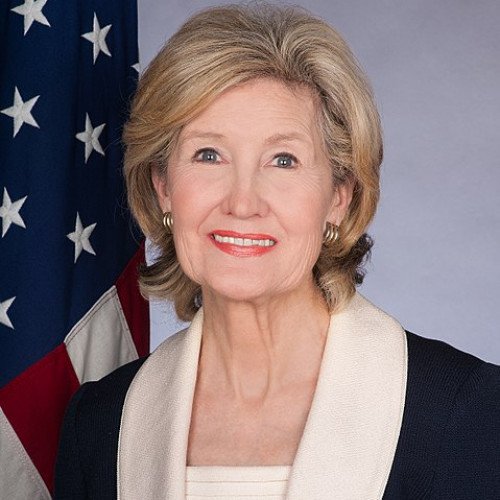Barry Goldwater VS Kay Bailey Hutchison

Barry Goldwater
Barry Morris Goldwater (January 2, 1909 – May 29, 1998) was an American politician, businessman, and author who was a five-term Senator from Arizona (1953–1965, 1969–1987) and the Republican Party nominee for president of the United States in 1964. Despite his loss of the 1964 presidential election in a landslide, Goldwater is the politician most often credited with having sparked the resurgence of the American conservative political movement in the 1960s. He also had a substantial impact on the libertarian movement.Goldwater rejected the legacy of the New Deal and, along with the conservative coalition, fought against the New Deal coalition. A member of the NAACP and active supporter of desegregation in Phoenix, Goldwater voted in favor of the Civil Rights Act of 1957 and the 24th Amendment to the U.S. Constitution, but opposed the Civil Rights Act of 1964, believing it to be an overreach by the federal government—a decision that considerably anguished him. In 1964, Goldwater mobilized a large conservative constituency to win the hard-fought Republican presidential primaries. Although raised as an Episcopalian, Goldwater was the first candidate of ethnically Jewish heritage to be nominated for President by a major American party (his father was Jewish). Goldwater's platform ultimately failed to gain the support of the electorate and he lost the 1964 presidential election to incumbent Democrat Lyndon B. Johnson by one of the largest margins in history. Goldwater returned to the Senate in 1969 and specialized in defense and foreign policy. As an elder statesman of the party, Goldwater successfully urged President Richard Nixon to resign in 1974 when evidence of a cover-up in the Watergate scandal became overwhelming and impeachment was imminent. Goldwater narrowly won re-election in 1980 for what would be his final and most influential term in the senate. In 1986, Goldwater oversaw passage of the Goldwater–Nichols Act, arguably his most significant legislative achievement, which strengthened civilian authority in the Department of Defense. The following year, he retired from the Senate and was succeeded by John McCain, who praised his predecessor as the man who "transformed the Republican Party from an Eastern elitist organization to the breeding ground for the election of Ronald Reagan". Goldwater strongly supported the 1980 presidential campaign of Reagan, who had become the standard-bearer of the conservative movement after his "A Time for Choosing" speech. Reagan reflected many of the principles of Goldwater's earlier run in his campaign. The Washington Post columnist George Will took note of this, writing: "We [...] who voted for him in 1964 believe he won, it just took 16 years to count the votes". Goldwater's views grew increasingly libertarian as he neared the end of his career. After leaving the Senate, Goldwater's views cemented as libertarian. He criticized the "moneymaking ventures by fellows like Pat Robertson and others [in the Republican Party] who are trying to... make a religious organization out of it." He lobbied for homosexuals to be able to serve openly in the military, opposed the Clinton administration's plan for health care reform, supported abortion rights, and the legalization of medicinal marijuana.
Statistics for this Xoptio

Kay Bailey Hutchison
Kay Bailey Hutchison (born Kathryn Ann Bailey; July 22, 1943) is an American attorney, television correspondent, politician, diplomat and the 22nd United States Permanent Representative to NATO from 2017 until 2021. A member of the Republican Party, she previously was a United States Senator from Texas from 1993 to 2013. Born in Galveston, Texas, Hutchison is a graduate of the University of Texas at Austin. Prior to entering politics, she was an attorney and legal correspondent at KPRC-TV in Houston. She was a member of the Texas House of Representatives from 1972 to 1976. After a brief business career, she returned to politics in 1990 when she was elected Texas State Treasurer. In 1993, she was elected to the United States Senate in a nonpartisan special election, defeating Democratic incumbent Bob Krueger and becoming the first female senator in Texas history. After being reelected to the Senate in 1994, 2000, and 2006, Hutchison was an unsuccessful candidate for Governor of Texas in 2010, losing the Republican primary to incumbent Rick Perry. Hutchison was the most senior female Republican senator by the end of her tenure in 2013, and the fifth most senior female senator overall. In 2013, she joined the law firm Bracewell & Giuliani.On June 29, 2017, Hutchison was nominated by President Donald Trump to be the next United States Permanent Representative to NATO. She was confirmed by the U.S. Senate in a voice vote on August 3, 2017.